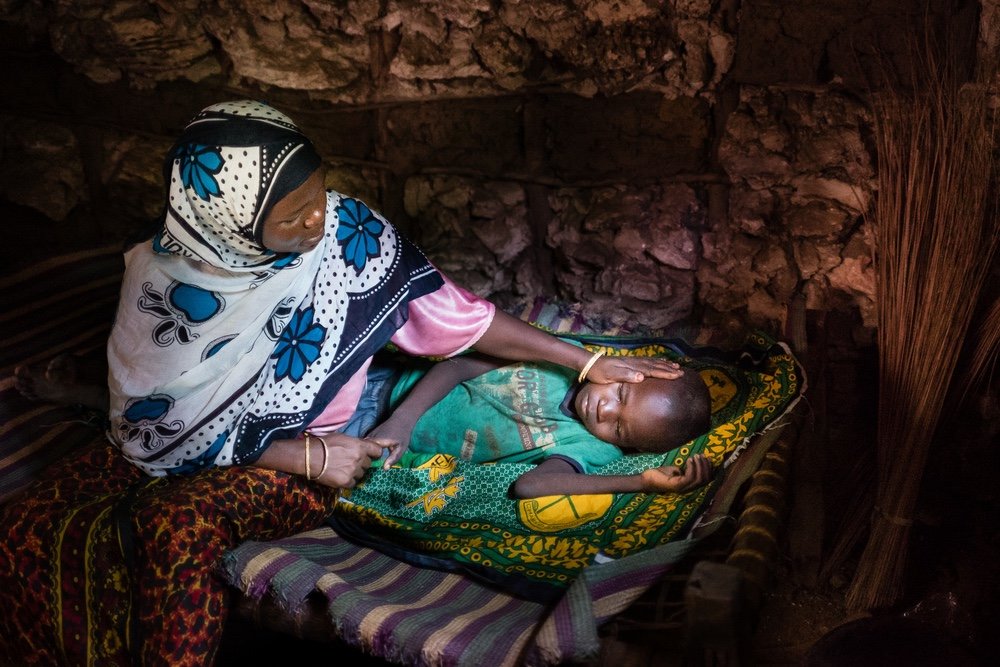This week, leaders are gathering in London for the Commonwealth Heads of Government Meeting 2018. With a packed agenda and forums, we’re working to ensure neglected tropical diseases (NTDs) are part of the conversation and that leaders take action.
A partnership of common values
The Commonwealth comprises 53 countries across 6 continents making up a quarter of the world’s landmass. It’s home to 2.4 billion people – a third of the world’s population.
It’s a voluntary association made up of countries who aspire to shared values and are mutually respectful, resilient, peaceful, prosperous and cherish equality and diversity.
Of the 53 nations in the Commonwealth, 46 are endemic for at least one NTD1, that’s around 87%. In fact, Commonwealth countries account for 56% of the global NTD burden. The Commonwealth represents an ideal opportunity to reach a considerable proportion of those at risk globally.
This year’s theme is ‘Towards a common future’ and will be examined in a series of forums: business, people, youth and women. NTDs adversely impact all these areas and affect the prosperity of a country by keeping people out of work and education.
A wealth of progress
- Guinea worm eliminated from the Commonwealth
- Lymphatic filariasis eliminated from the Cook Islands, Niue, Sri Lanka, Tonga and Vanuatu
A more sustainable future

The future of the Commonwealth is in the hands of the young. With 60% of the Commonwealth’s population under 30, ensuring young people are afforded every opportunity to grow and develop helps to assure this future. NTDs such as soil-transmitted helminths affect cognitive development early in life and the archaic stigma of leprosy excludes young people from contributing to their communities.
All Commonwealth countries are signed up to the 2030 Agenda – a commitment to create a better future across 17 Sustainable Development Goals (SDGs). NTDs feature specifically as a target under the health goal and all governments should be reviewing their progress towards these goals.
A fairer future

NTDs disproportionally affect women and children, both directly by infection and through traditional gender roles by caring for their families when a loved one falls ill. Investing in NTDs means investing in the future of women and girls.
Universal health coverage and the plight of women and girls are the headline topics in the global health arena for good reason. For health systems to truly benefit people, they need to be accessible to all with no exceptions.
NTD programmes are equitable, universal and reach those in the remotest places. Much like the Commonwealth, the Uniting to Combat NTDs partnership operates on a set of shared values and ideals and works together to improve the lives of billions.
A more secure future
Health and security go hand-in-hand. A healthy population feels safe. Safe from fear of disease and safe from being plunged into poverty through unforeseen medical expenses. In 2005, the United Nations coined the term ‘human security’ to define the rights of all people to feel safe:
“We stress the right of people to live in freedom and dignity, free from poverty and despair. We recognize that all individuals, in particular vulnerable people, are entitled to freedom from fear and freedom from want, with an equal opportunity to enjoy all their rights and fully develop their human potential.”
NTDs erode this sense of safety. People in endemic areas live every day under this sword of Damocles and many have no choice but to keep exposing themselves to the risk of infection. They have to fish and wash in water containing parasites. They live in areas where blood-sucking insects spread lymphatic filariasis and the fatal human African trypanosomiasis and Chagas disease.
NTD programmes empower communities to take charge of their destinies. They strengthen the bonds by including local people as health workers and drug distributors. Stronger communities lead to safer communities, which can lead to prosperous communities.
A more prosperous future
NTDs are debilitating. They affect mobility and lead to further health problems. When someone contracts an NTD, their ability to work and provide for their family is significantly reduced. Children can be taken out of school to help. Over the long term, the productivity of an entire region can diminish and with it, the contribution that region makes to the wider economy. NTDs chip away at a country’s prosperity almost as if the country itself was infected.
However, investment in NTD programmes is one of the best buys in public health. The return on investment depends on the country, its overall burden and numerous other factors, but striking results are possible offering $25 for every $1 invested to affected individuals. Guinea worm disease – once afflicting millions – is now on the verge of eradication. Only 26 cases were reported globally in 2016 and once gone, it will be the first disease in human history to be eradicated without the use of drugs. These cost-effective programmes have alleviated the suffering of many at a fraction of the cost other treatments.
Ending NTDs in the Commonwealth is possible and we call on all Commonwealth leaders to raise their hands and join us in uniting to combat NTDs.
Learn more by viewing our Commonwealth and neglected tropical diseases resource page.